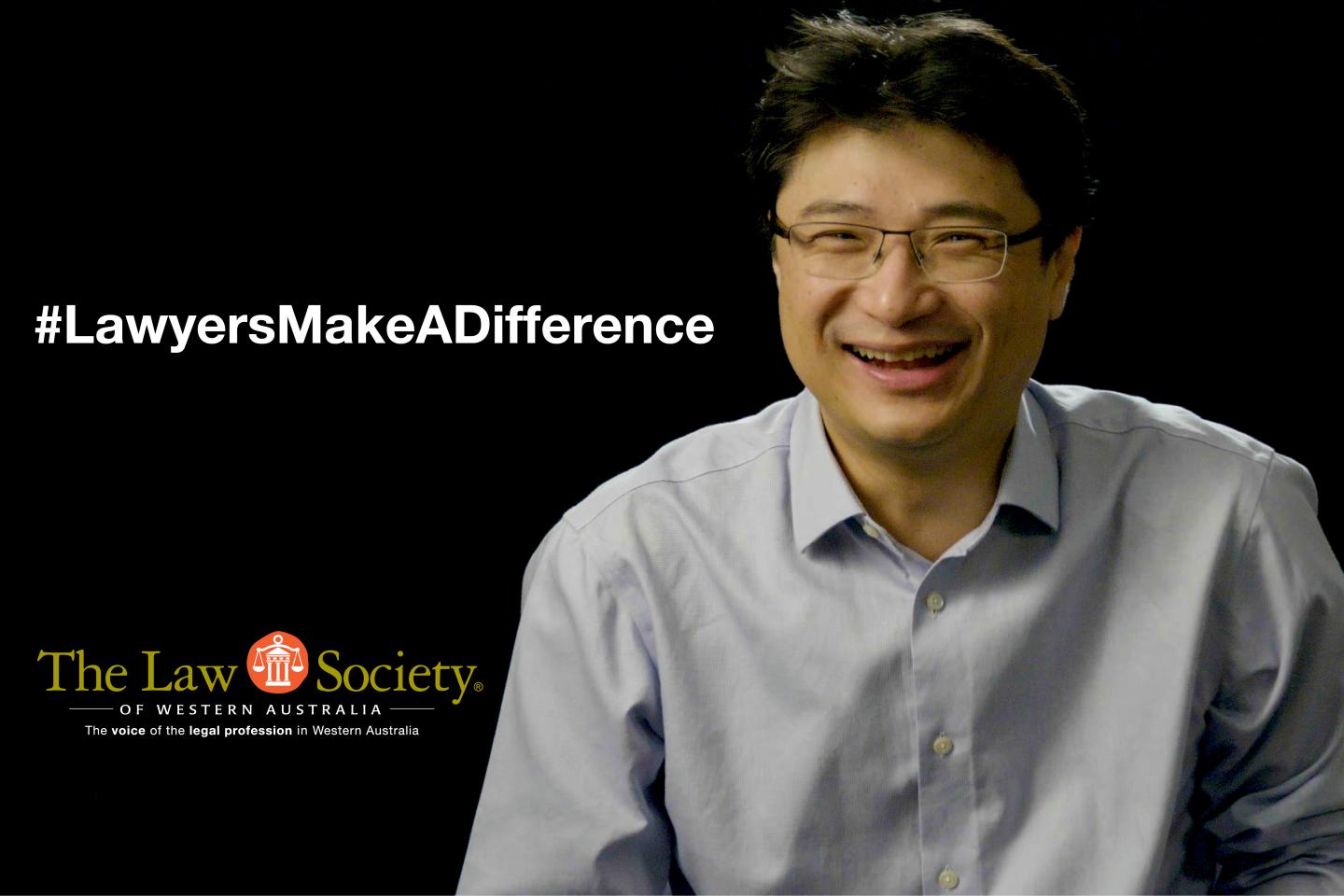

In Law Week 2019, the Law Society of Western Australia launches a new, ongoing campaign, #LawyersMakeADifference, to highlight real stories of lawyers using their skills to help people in our community. In this article, Tony Chong, Managing Partner (Perth) at Squire Patton Boggs (AU), shares his story.
Lawyers are funny beasts. There is no doubt the legal profession (like all professions) has changed over the years. The commercial pressure of running a legal practice has increased and is not likely to abate. Lives are increasingly getting complex. Laws are getting complex – none of which are necessarily the doing of lawyers. There is a general mystique about what lawyers do. It is no wonder that many see what lawyers do as a form of “dark arts.” Some see lawyers as working in ivory towers and out of touch. Others see lawyers as “sharks” and pushing up the price of justice. Is there some truth to this? Perhaps.
Yet, that is not the full story. There remains an air of respectability with lawyers and there is a high expectation that lawyers can deliver solutions and be problem solvers in an increasingly complex environment. Leaving aside all the lawyer jokes (and lawyers do need to grow a thick skin for them), it is often the case that lawyers are the ones that people turn to when help is needed to get out of a serious predicament.
Therein lies the conundrum for lawyers – how do lawyers stay as lawyers in a venerable profession and maintain their oath and duty as officers of the court, and deliver services matching such expectation in a commercially sustainable manner and yet at the same time, get to do what really drove them into the profession in the first place.
What is not known is why many end up as lawyers in the first place. It is certainly not the prestige nor the thought of how much one may be financially rewarded through the profession. At the most basic level, many enter into the profession to serve – to do good, to help, to get justice for all.
Lawyers are officers of the court, and we owe it to ourselves and are bound by our oath to be ethical at all times. Few professions require such high standards of their members at all times. Lawyers are fortunate to be trained to be logical, analytical and problem solvers. For those reasons, many are asked to serve on community committees, boards and take on leadership positions, and many do such things often on volunteer bases. The basic urge to help sees many give time and effort to act on pro-bono basis, often with no or little recognition. But truth be told, it is never the recognition that the lawyer seeks in engaging in pro-bono work. It is the satisfaction from being able to help and be part of the community and the opportunity to influence change and how we live in our community that drive lawyers to do volunteer work and the work they do on a day to day basis.
These days lawyers come in all shapes and forms, with many from varied backgrounds and life experiences. That is to be encouraged. Not all of them will have the typical image of a lawyer wearing suits and ties; but not wearing them does not make them a lesser adviser. It is not what they wear that counts. It is their skills, backgrounds, life experiences and emotional intelligence that are important. It is those very things, together with his or her training, that a lawyer relies on when advising his or her client.
Lawyers do and can make a difference. Many are just simple hard working and honest people. For many, they make that difference silently, day in, day out - but there is nothing wrong with that. It would of course be nice maybe just one day that they, the lawyers, are not portrayed as sharks but rather as people who love to help, and as people with hearts. That is a nice goal and a nice dream.
To find out more, watch the #LawyersMakeADifference campaign video and follow the Law Society's social media channels: Facebook, Linkedin and Twitter.






